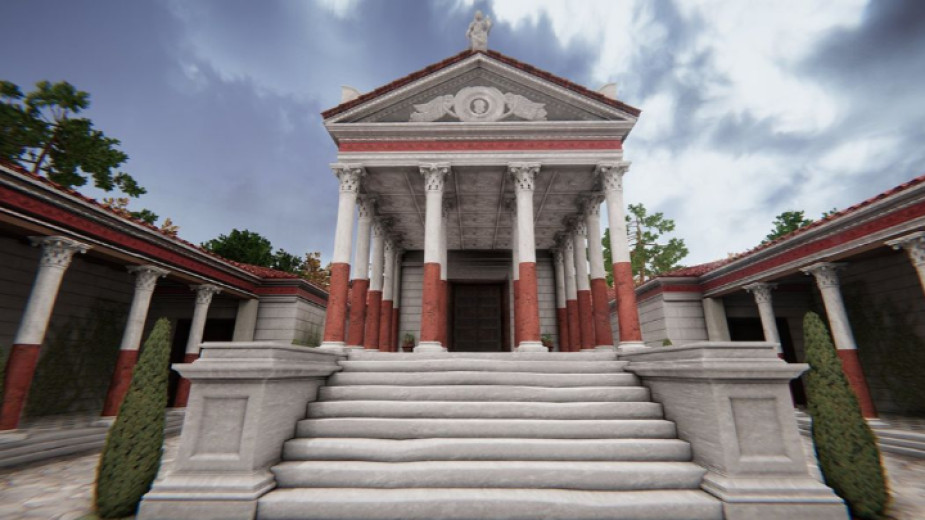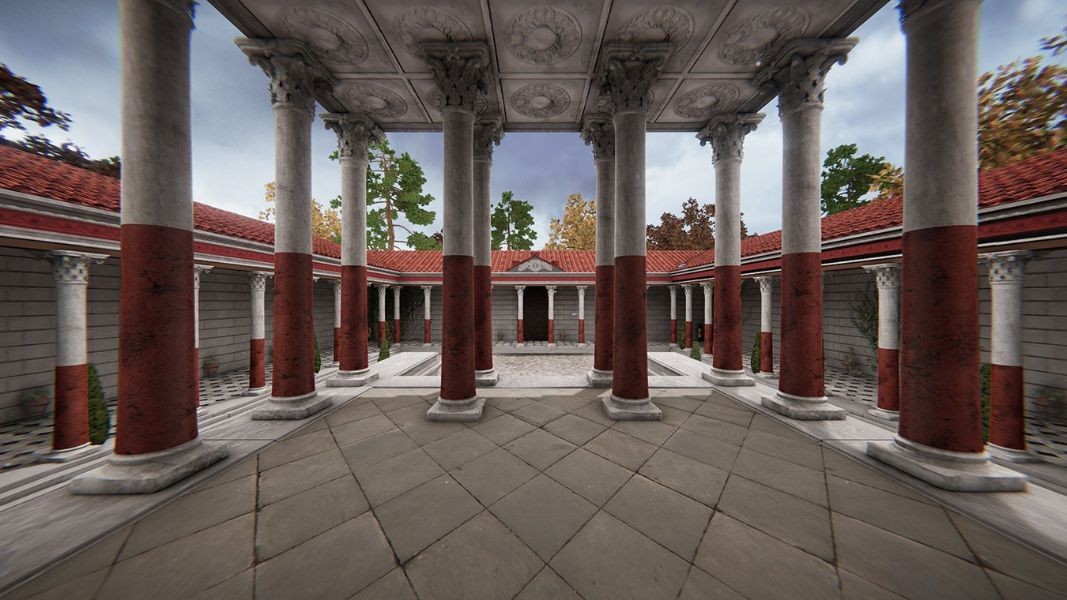 4
4
Visitors to the National History Museum in Sofia can now take a virtual walk in the temple of the ancient Roman goddess of happiness and fortune Fortuna. The building is part of the former Roman colony of Ulpia Oescus near the present-day Bulgarian village of Gigen, near the Danube River. The virtual restoration reveals in the smallest details all the splendor and beauty of the former temple and is now part of the permanent exhibition of Bulgaria’s National History Museum.
The Temple of Fortune (templum Fortunae) was located in the Forum complex of Ulpia Оеscus. It has been fully discovered and studied by archaeologists. The building was constructed in the Corinthian style. According to a Latin inscription, the temple was dedicated to the Roman emperor Commodus (180-192) and was built with the funds of the then "association of craftsmen" (collegium fabrorum) in 190.

The colonnade of the courtyard was decorated with a frieze - architraves with embossed bull heads and laurel garlands. The temple consisted of an entrance hall and a cult room. Its southern façade had four Corinthian columns. On the triangular pediment there were two Victorias depicted, holding a laurel wreath. Inside, in the wreath, was a relief image - probably the head of Medusa, to protect against evil. The temple complex was destroyed by the Goths or by an earthquake in 376-378.

You can find more interesting details related to the tumultuous story of the ancient Roman city of Ulpia Oescus here:
Compiled by Veneta Nikolova
Photos: National History Museum
English version Rositsa Petkova
Today, 6 November, marks 104 years since the annexation of the Western Outlands in 1920. Traditionally Bulgarian territories in south-eastern Serbia and northern Macedonia were ceded to the Kingdom of Serbs, Croats and Slovenes in 1920 as a result of..
Volunteers joined the efforts to clean and restore the monastery St. Spas near Bakadzhik peak. The campaign is being organized on 2 November by Stoimen Petrov, mayor of the nearby village of Chargan, the Bulgarian news agency BTA reports. The..
There are three special days on the calendar of the Bulgarian Orthodox church, on which believers pray to God and give alms to honour the memory of their dear departed. The three All Souls’ Days always fall on the Saturdays before Meat..
105 years ago, on November 27, 1919, a treaty was signed in the Parisian suburb of Neuilly-sur-Seine, officially ending Bulgaria's..
The head of the statue of Tyche, the goddess of Philippopolis, has been discovered in the Episcopal Basilica in Plovdiv, said the head of the..

+359 2 9336 661
